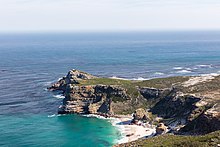
A noa-name is a word that replaces a taboo word, generally out of fear that the true name would summon the thing. The term derives from the Polynesian concept of noa, which is the antonym of tapu (from which derives the word taboo) and serves to lift the tapu from a person or object.
A noa-name is sometimes described as a euphemism,[1] though the meaning is more specific; a noa-name is a non-taboo synonym used to avoid bad luck,[1] and replaces a name considered dangerous.[2] The noa-name may be innocuous or flattering, or it may be more accusatory.[3]